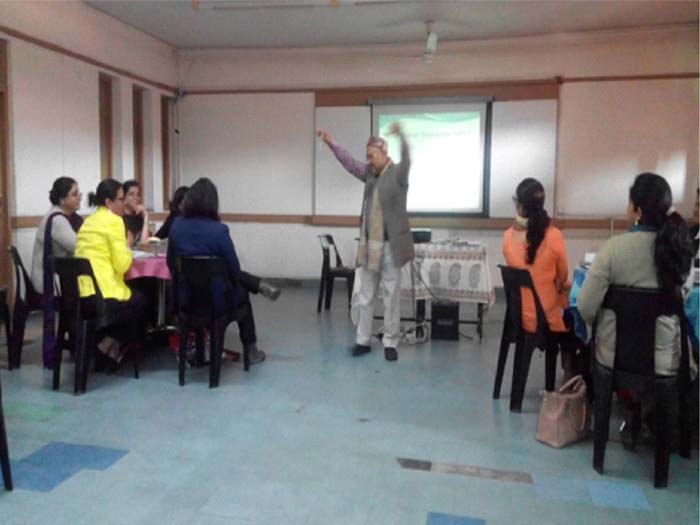Workshop on Creative Classroom Practices
Learn Today held a two day workshop on 16th and 17th February, 20 at Vasant Valley School for the E.V.S teachers of classes III to V. The workshop was based on Creative Classroom Practices- Taking Learning Beyond 4x2 ( the four walls of a classroom and the two covers of a text book). The workshop was conducted by Shri Vagish Jha, expert in alternative education and pedagogy. He is involved in the production and dissemination of audio-visual educational programmes and teaching material.
[gallery link="file" columns="2"]
On Day 1 of the workshop, participants learnt some effective techniques on how to create an engaging atmosphere within the classroom. The first such technique was termed - I Mok ( Inquiry into Moms Kitchen). All the participants were divided into groups. Each group was given an assortment of grains and spices from the kitchen and a worksheet. Mr. Jha explained each category listed in the worksheet and the rationale behind including each. Alas the list brought home to us how little we knew of grains and spices! The groups had to first identify the grain or spice, list which part of the plant it was, its everyday use, place of origin etc.
In another exercise, Mr. Jha showed us a short video film on the Peepal tree. This triggered a discussion about the animate and inanimate processes that occur around a tree. He then sprung us a surprise but letting us know that the tree in the film told us the tree stood in our own School compound! Interestingly, not many had observed on either their way in or home. The film expectedly aroused a lot of curiosity amongst the participants. Thereafter, the participants filled in a worksheet based on their observations of the tree.
Both tasks made us sit up and take cognisance of the immense potential of learning things from our immediate environment. By the end of the day we were able to:
- Learn ways to use our immediate environments as learning resources.
- Understand the difference between observation, inference and impression.
- Understand ways to design nature walks with a clear learning framework and outcome.
On the second day, the focus was to:
- Develop learning triggers with easily available resources.
- Incorporate deep learning through everyday phenomena and activities.
Mr. Jha spoke of the importance of field trips and how to make them educative and not just picnics. As an example, he showed us how to prepare a worksheet on a nature walk, to enable a record of the trip. Such a worksheet in turn enables an evaluation of the delivery achieved by the trip. He suggested several learning objectives and strategies and also stressed that materials required for the field work should also be made note of. The participants learnt how to prepare the format of a basic observation sheet which the students could fill up.
Mr. Jha also spoke at length about how to conduct an appropriate seasons'-watch session at School. To train students of various age groups to become keen observers of their natural surroundings. He suggested the use of concepts of Science and Mathematics to understand and natural phenomena. The seasons'- watch could also act as a catalyst in realising the creative and literary potential of students.
The workshop was an enriching experience. It introduced participants to new techniques and methodologies developing critical faculties through observation and experience-sharing. Some of the techniques could be easily dovetailed with regular classroom teaching to make a more complete exercise.
Ms. Rakhi Singh.













